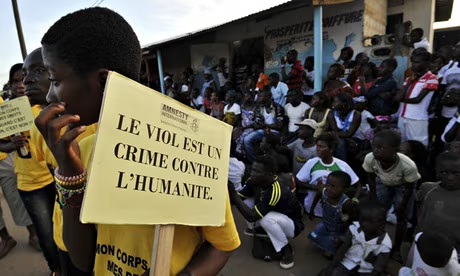Addis Abeba, 18 March 2019
Madam Chairperson,
Members of the Committee,
Distinguished Participants:
Since the outbreak of the Anglophone socio-political crisis in Cameroon in late 2016, schools have been systematically and deliberately targeted, either overtly or allegedly, by pro-independence fighters/separatists. At first, the strategy was to call for school boycott by children, with threats and attacks on anybody who dared to go to school. Later, the strategy evolved to directly attacking and burning down schools, or invading schools with arms and forcefully sending everybody home, causing a lot of hysteria. Recently, the attacks on schools have evolved to the breaking into schools by unidentified armed persons and kidnapping of children in huge numbers, either for ransom or to create panic. In some instances, both separatists and government have accused each other for being responsible, though government practically remains in control of these zones, evoking the need for investigation and accountability.
This atmosphere of terror surrounding schools in the English-speaking part of Cameroon has seriously handicapped education of children in that part of the country, with effects felt even in the French-speaking part. Schools in the English-speaking part witness intermittent interruptions, apparently for as long as the separatists want it to be, especially as they accompany their moves with threats. Also, school children go on campus and study with fear, as there could be sporadic attacks. Worse-still, a lot of schools have practically shut down, because of attacks or fear of attacks. Sadly, while thousands of children have relocated to the French-speaking part of the country to pursue education, there is massive overcrowding in schools in many of these communities. This therefore undermines the quality and effectiveness of teaching and services in schools accommodating these displaced children.
Some pundits believe taking education hostage is intended to urge government and the international community to take the concerns of the separatists seriously; while some persons just do not see the need for child to go school when, according to them, there is no hope for children and young people in the country.
Whatever the motive, it is unacceptable for children to be victimized and terrorized for simply wanting to go to school, and for children’s education to be used for bargaining in armed conflicts. We are not able to clearly determine who is directly responsible for all the aforementioned violations; but we are concerned about the fact that children’s right to education is systematically violated.
We want to applaud the Committee’s recent move to earmark children and armed conflict as a major area of focus. We are glad to remark that the General Comment being drafted on Article 22 of the African Children’s Charter highlights the need to deal with grave breaches regarding children and armed conflict, including attacks against schools and abduction of children.
We therefore urge the Committee to be mindful of the Cameroon situation, amongst others on the continent, and take measures towards contributing to remedy this situation.
Thank you.




